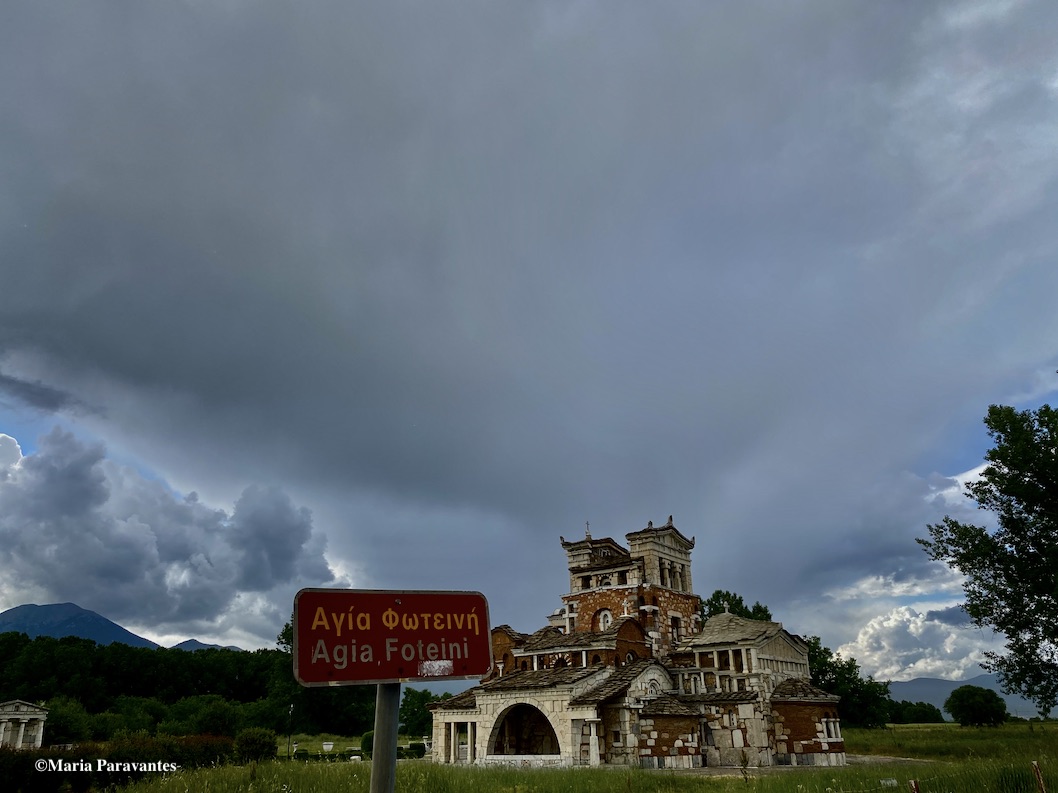
*This post was first published in The Greek Vibe on April 17, 2012, when Dimitris Mitropanos passed away. It has been updated due to popular demand.
There was always something unique about Dimitris Mitropanos. As one friend put it: he was perhaps the most popular singer in Greece that was somehow off key. When I later thought about it, I came to the conclusion that that’s exactly what made him so beloved. Mitropanos was the guy next door, the friend you would share a glass of wine or some olives and cheese with, the shoulder to cry on, and once those tears dried up, the person you would sing with about life’s hard blows.

Besides, I always thought that his distinctive “off key” voice was what made all of us feel comfortable singing his songs. And yet Mitropanos, with no formal music education, interpreted such historic works in Greek music that very few artists have ever had the opportunity to be trusted with. Furthermore, rarely have there been covers of Mitropanos’ songs primarily due to the fact that his passion cannot be mimicked.
Mitropanos was born in Trikala, central Greece, in 1948. Fate had it that he would meet his father for the first time 29 years later, when the family received a letter saying he was alive and living in Romania. As a lad, Mitropanos worked in all sorts of odd jobs to support the family. Like many Greeks in the ’60s he came to Athens seeking a better future. It wasn’t long before he began to sing “out of need”. But he never wanted to become a singer. He admits it took him a while before he finally accepted his calling. He wanted to become an architect but that was out of the question. His father was a communist. And in those days, having a “red” background was equal to no rights.
Dimitris Mitropanos: Raw Talent
It was singer Grigoris Bithikotsis who heard something special in Mitropanos’ unrefined voice and suggested he visit the studios of Columbia Records, where he met bouzouki great Yiorgos Zambetas and got his big break. He worked beside Zambetas and learnt “how to be a singer”. Of the master Zambetas, whom he called his teacher and father, he said: “He was the only person in song who helped me without expecting anything in return. In every other collaboration, I have given something and received.”
It wasn’t long before the big names like composers Mikis Theodorakis, Dimos Moutsis, Apostolos Kaldaras, Yiannis Spanos, Takis Mousafiris, Dimitris Papadimitriou, Yiorgos Katsaros, Yiorgos Hadjinasios, Christos Nikolopoulos, and others would discover his raw talent. At 18, Mitropanos records his first 45 single, “Hameni Paschalia” (Lost Easter) by Vasilis Koumbis to the lyrics of Dimitris Iatropoulos:
… but it was censored by the military junta and never released because the colonels found it as being politically tinged.
A milestone in Mitropanos’ career was 1971 album “Agios Fevrouarios” (St February) by Moutsis and poet Manos Eleftheriou. Other hits that marked the ’70s included the 1974 zeibeikiko “Pes Mou Pou Palan Kardies” (Tell Me Where Hearts are Sold) by Mousafiris.
1981 “Mi Paraponiesai” (Don’t Complain) by Hadjinasios and Manos Koufianakis
…and later my favorite “Eisai Oraia San Amartia” (You’re Sinfully Beautiful) by Stavros Kougioumtzis and Lakis Teazis.
Mitropanos ushered in the ’80s with a song that marked an entire generation. Together with Lakis Papadopoulos (aka Lakis me ta Psila Rever), he released “Gia Na S’Ekdikitho (To Take Revenge on You), lyrics by Kyriakos Doumos…
…a painfully tender song about love lost. His moving delivery of desperation was so powerful it instantly became the ballad of the brokenhearted.

Mitropanos: The Definite Laika Singer
Mitropanos’ magnitude has to do with the fact that though he was the definite laika singer, we say he had a “laiko” voice – a voice that represents the Greek people (years ago this meant the working classes) – he managed in his 45-year career to move from one genre to the other, whether that was art song (entechno), laiko or rock, with great ease but at the same time doing nothing to fit into these styles.
He sang exactly the same way, conveying the truth and timeliness of the lyrics. With the release of every new album, he would tread into fresh yet familiar territory making music history every single time… with a “laiko” nuance. One such album was “Stou Aiona tin Paraga” (In the Century’s Shack), composed by Thanos Mikroutiskos and a handful of Greece’s most gifted wordsmiths. “Roza” off this album to the lyrics of Alkis Alkaios stole our hearts:
One of my favorites was the driven rock zeibeikiko “Ta Kokkina ta Blues” (The Red Blues) off 1998 Tou Erota kai tis Fygis (Of Love and Flight) by the late Manos Xydous of Pyx Lax fame.
Mitropanos “left” us today (April 17, 2012), in humility as he served Greek song. He was 64.
In his last interview to Kallia Kastani for DownTown magazine Mitropanos describes what “laiko” song is all about:
“Laiko song is a complex affair… it’s not classical music, it needs soul (duende), pain and sharing…. Long ago, five or six musicians would gather, Papaioannou and Bithikotsis would say ‘Let’s go to Tsitsanis’ house’, and they’d go, sit, eat, drink and then they’d pick up the bouzoukia and come up with a tune and some words. Today people live alone. How can you make a song?”
Dimitris Mitropanos
Indeed, I will remember Mitropanos as one of the most important parts of my childhood and adolescence, when my parents and their friends would do just that. They’d all get together talk, drink, eat, sing and dance on the lawn of a Chicago backyard with Mitropanos songs blaring in the background. Those were carefree days, with nostalgia for Greece at its peak. I will continue to carry his “off key” voice in my heart because its crude soul represents the beauty of this country, its music and its people. Mitropanos will live on though his songs, which will continue to speak to the hearts of Greeks and friends of Greeks far and wide. And that, my friends, is true immortality.
An introduction to Greek music.
🎶I end this post with just one more meaningful song by Dimitris Mitropanos: “Alimono” … “Alas to Those Who’ve Never Loved” penned by Sakis Kapiris and Mimis Christopoulos in 1971.


